A Brief History of Duesenberg
By: By Robert Tate, Automotive Historian and Researcher

A Brief History of Duesenberg
Images Courtesy of the National Automotive History Collection/Various Media Sites
Throughout American automotive history, the Duesenberg automobiles always had a great reputation for craftmanship. Some automotive historians over the years have called the Duesenberg automobiles a synonym for scientific pioneering.
This is a brief history of the Duesenbergs, which became some of the most prestigious automobiles in the world. The first production automobiles carrying the Duesenberg nameplate were introduced to the public in 1920.
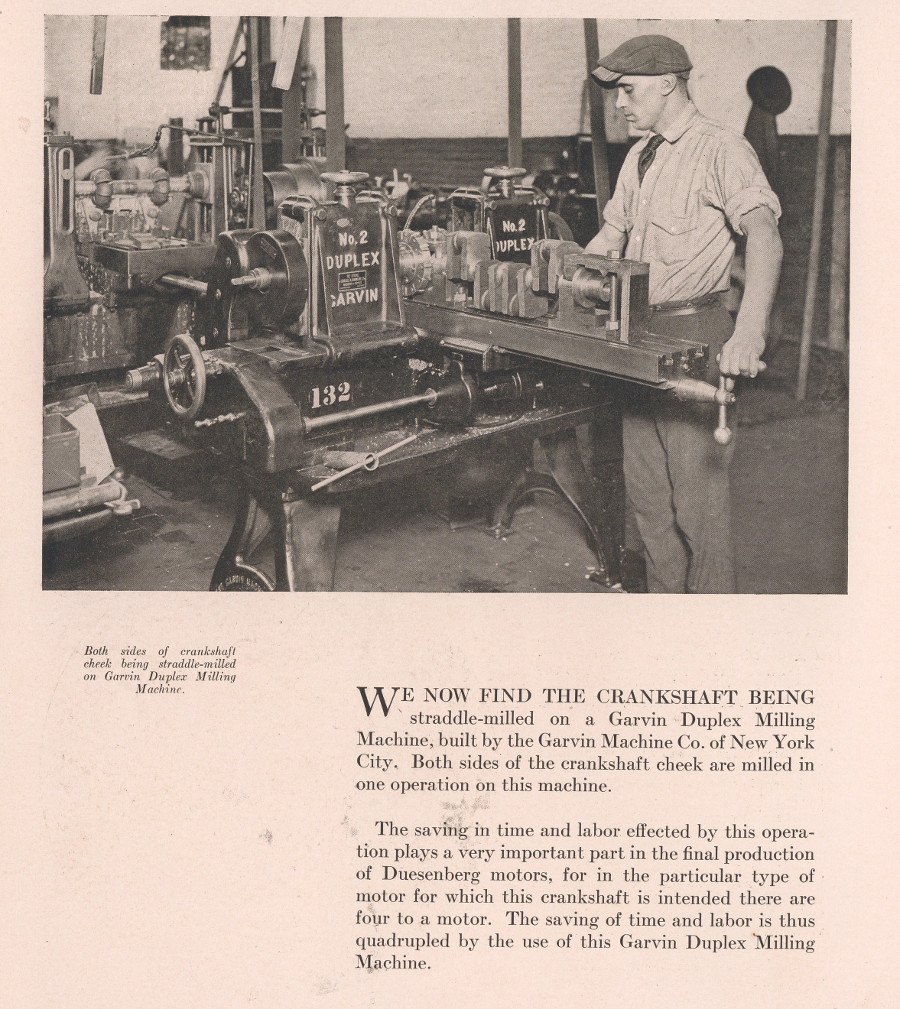
Duesenberg employee working on crankshaft 1918 (National Automotive History Collection)
The two brothers who started the Duesenberg Company were Frederick Duesenberg (1876-1932) and August Duesenberg (1879-1955), who were both born in Lippe, Germany. They were known as Fred and Augie. In the beginning, the two brothers were well known for repairing farm machinery, which opened the door later for making bicycles during the early 1900s. Later, they would develop a rotary valve engine that became a part of their bicycle design.
In 1905, Fred Duesenberg designed a two-cylinder automobile, and the Mason Motor Car Co. of Des Moines, Iowa was formed to manufacture it. Later in 1916, the brothers joined J. R. Harbeck, managing director of Loew-Victor Manufacturing Company in Chicago.
The Duesenberg Motors Company was later developed, a tribute to the brother’s great reputation for making race cars, however, neither brother had a financial stake in the venture. Both brothers were under contract to Duesenberg Motors until well into the year 1919. During this time, the company's manufacturing plant offered its workers 187,000 square feet of space in Newark, NJ. Men and women were employed in various manufacturing jobs, including building auto parts like the crankshaft (pictured).
Women like the one below played a key role in the manufacturing process, inspecting parts before they were added to the assembly line.
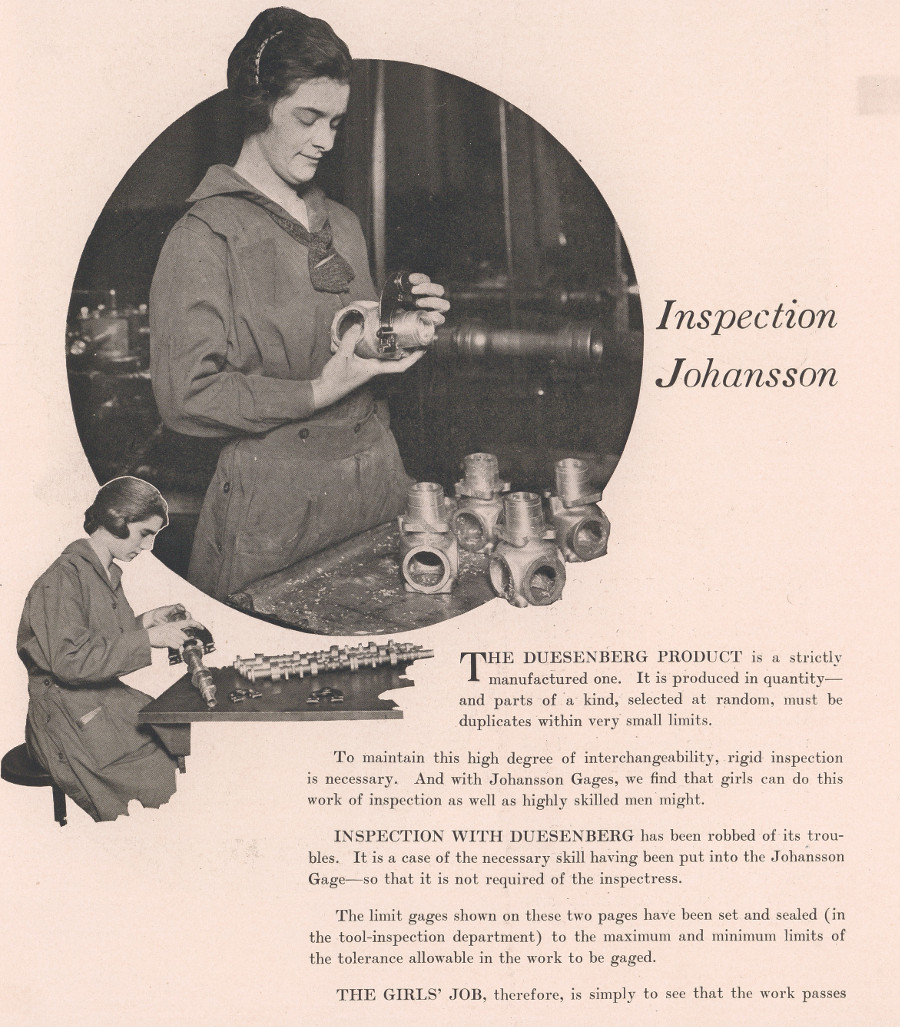
Female inspector at Duesenberg factory 1918 (National Automotive History Collection)
From 1921 to 1937, Duesenbergs were manufactured in Indianapolis Indiana. Both brothers were now under contract to a new company called “Duesenberg Auto & Motors Inc.," to which they sold the rights to build cars and engines under the Duesenberg name plate. During the 1920s and 1930s, the Duesenberg was the king of the American road. The luxury car's price was very expensive -- $8,500.
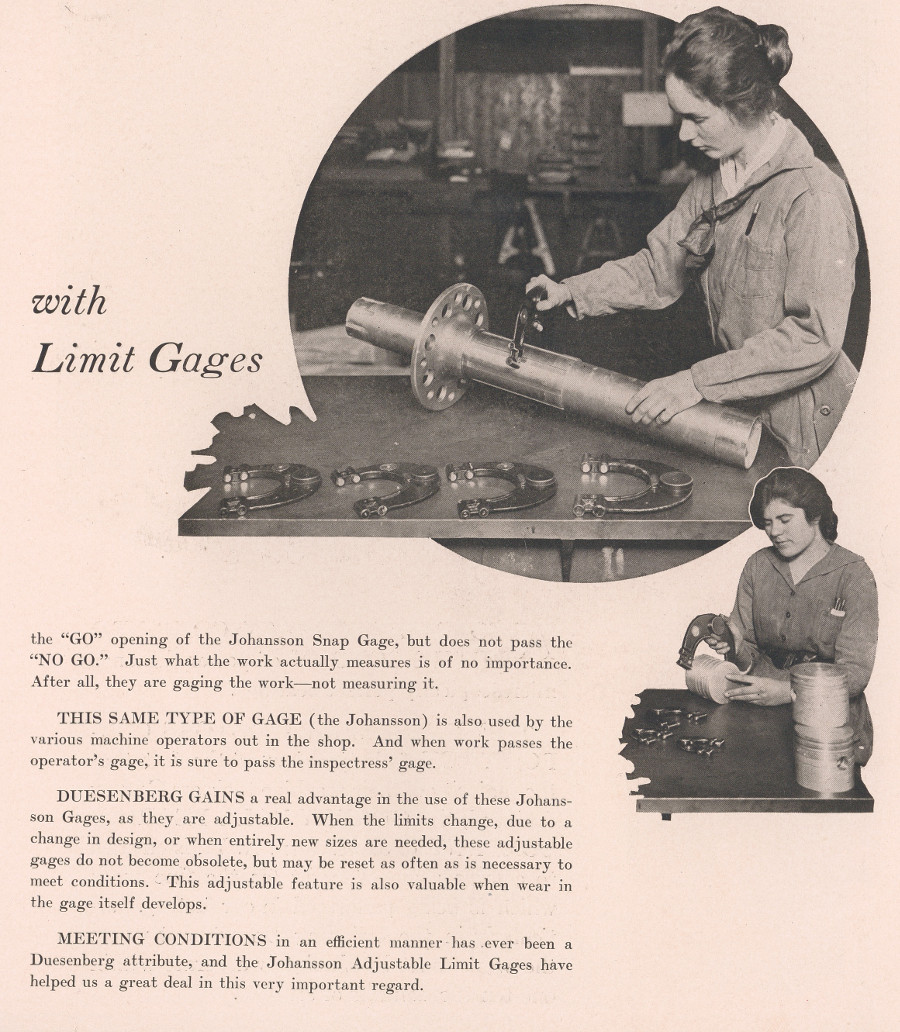
Female employees at Duesenberg factory 1918 (National Automotive History Collection)
Duesenberg advertising illustrated great-looking men and women to sell their vehicles, using headlines like “She drives a Duesenberg” or “Duesenberg, the world’s finest Motor car.” During the 1930s, many actors such as Gary Cooper purchased Duesenberg automobiles to show the American public you had class and prestige.
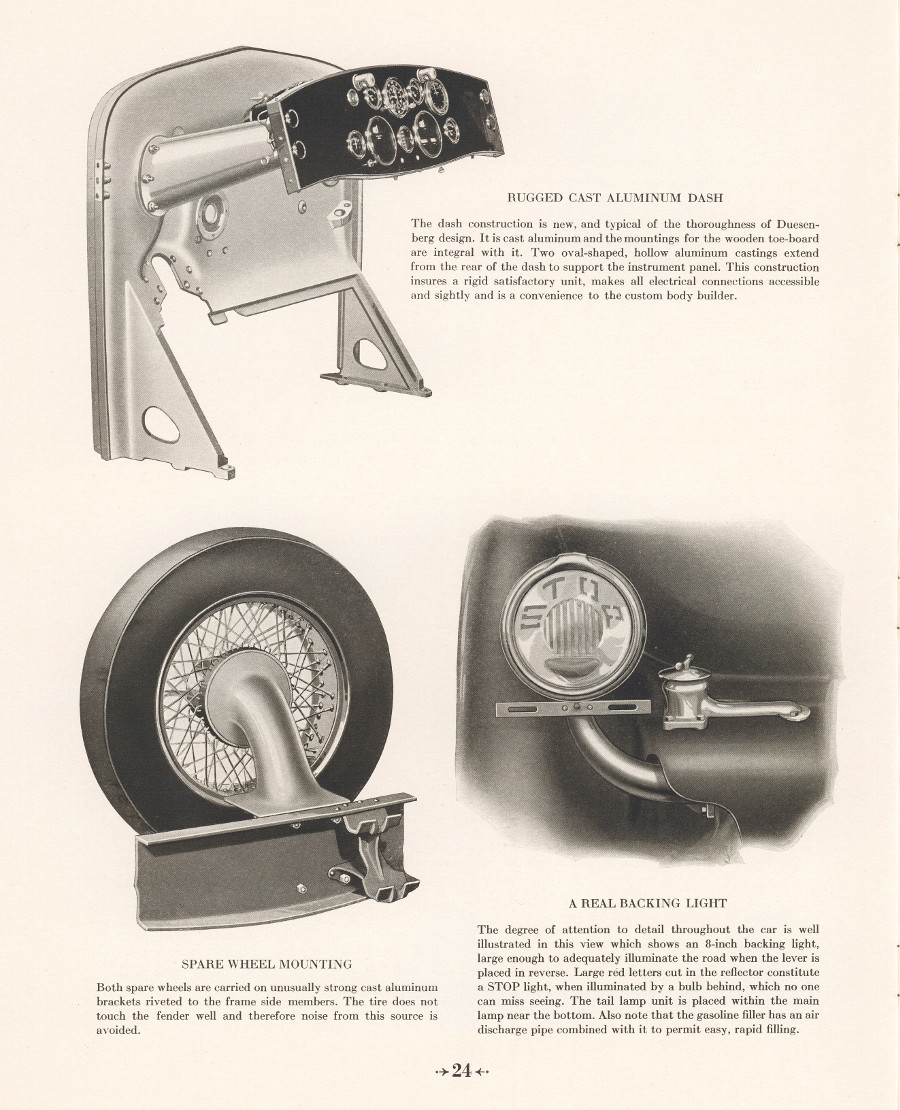
Duesenberg accessories 1929 (National Automotive History Collection)
Throughout the 1920s and early 1930s, the brothers divided their time between developing great-looking classic models like the A, X and J, as well as new racing cars. Their racing cars became very popular at the Indianapolis 500.
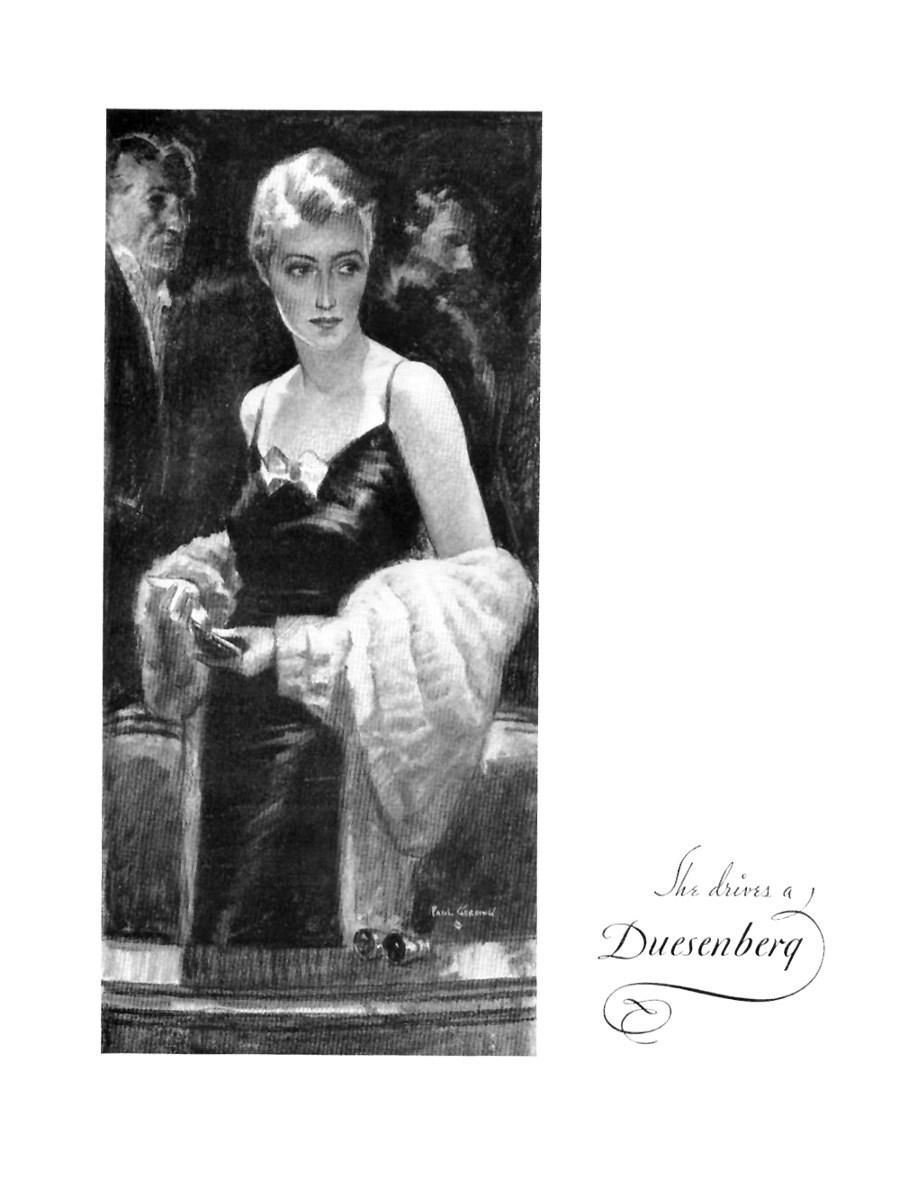
1935 Duesenberg ad (Wikimedia Commons)
In July 1932, Fred Duesenberg was involved in an accident on the Lincoln Highway and would later die of pneumonia. After Fred’s death, Augie continued to work, contributing to the design of the famous Auburn Cord Duesenberg name plate until 1937.
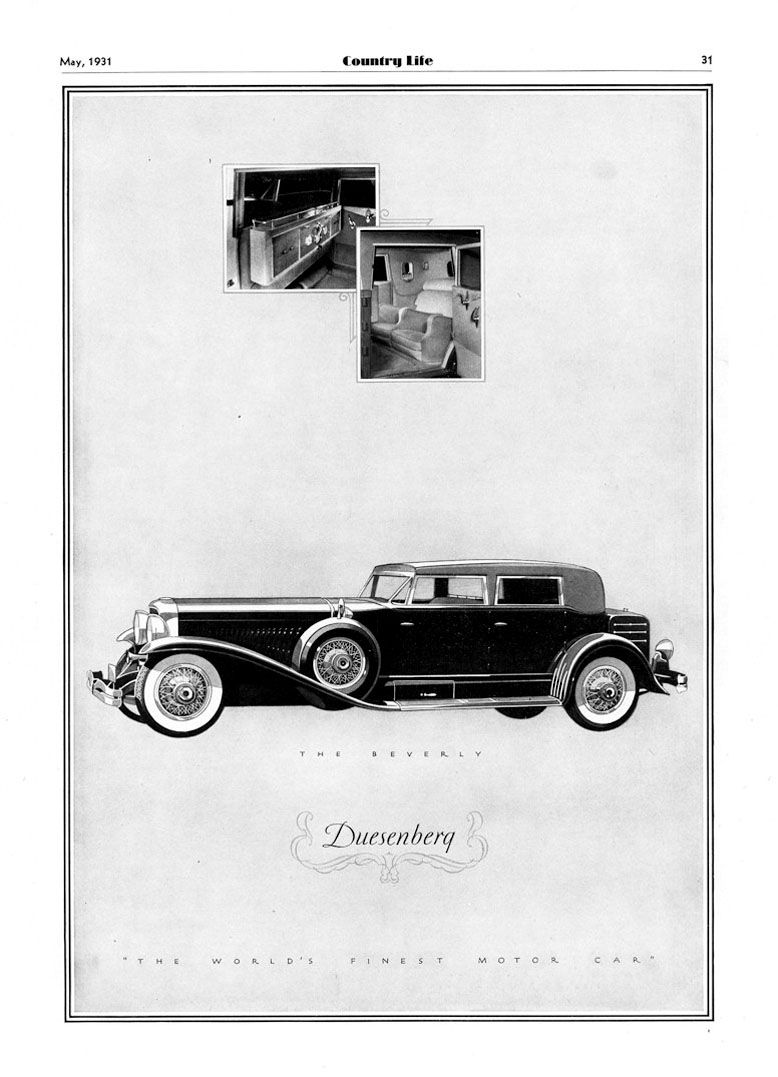
1931 Duesenberg ad (National Automotive History Collection)
In conclusion, there were plans to bring back the Duesenberg name plate after World War II, but the car would have been too costly to manufacture. In 1955, Augie passed away.
Today, the contributions of the Duesenberg brothers to the auto industry and its history will be celebrated for many generations to come.
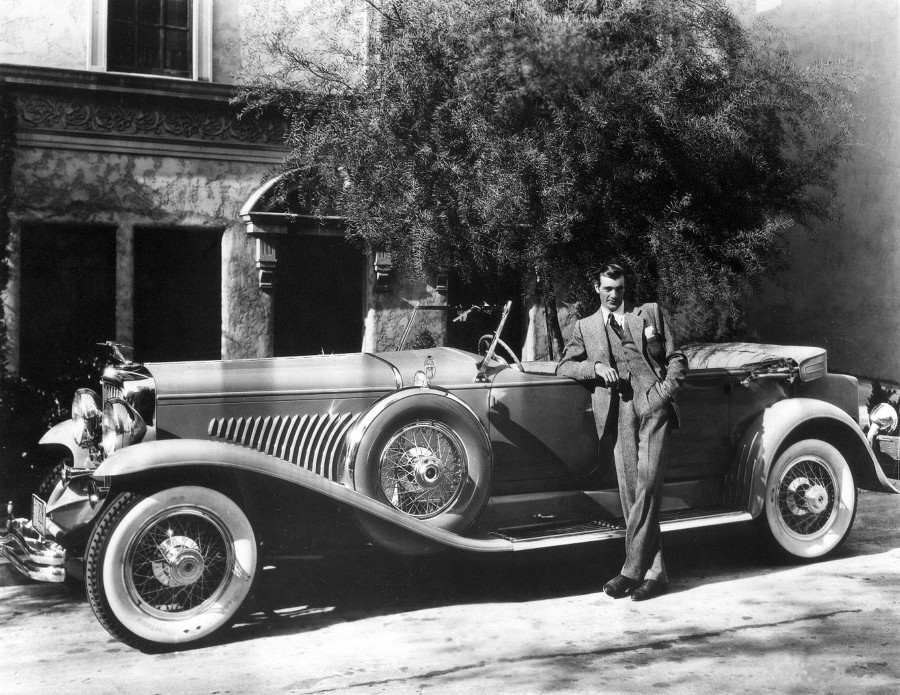
Actor Gary Cooper with a 1931 Duesenberg
Bibliography
“The power of the hour.” Duesenberg Motors Corporation, 1918-1919.
Kimes, Beverly Rae and Clark Jr., Henry Austin. “Standard Catalog of American Cars 1805-1942.” Krause Publications, 1989.
Duesenberg 1927-1929 sales catalogs.
No politics, no religion, no instagrams, and commentary must be civil. The ToS and the CoC will be enforced, and anything that the administrator deems to be offensive will be deleted. YouTubes, videos and images that the administrator is unable to open must be described and explained or they will be deleted.


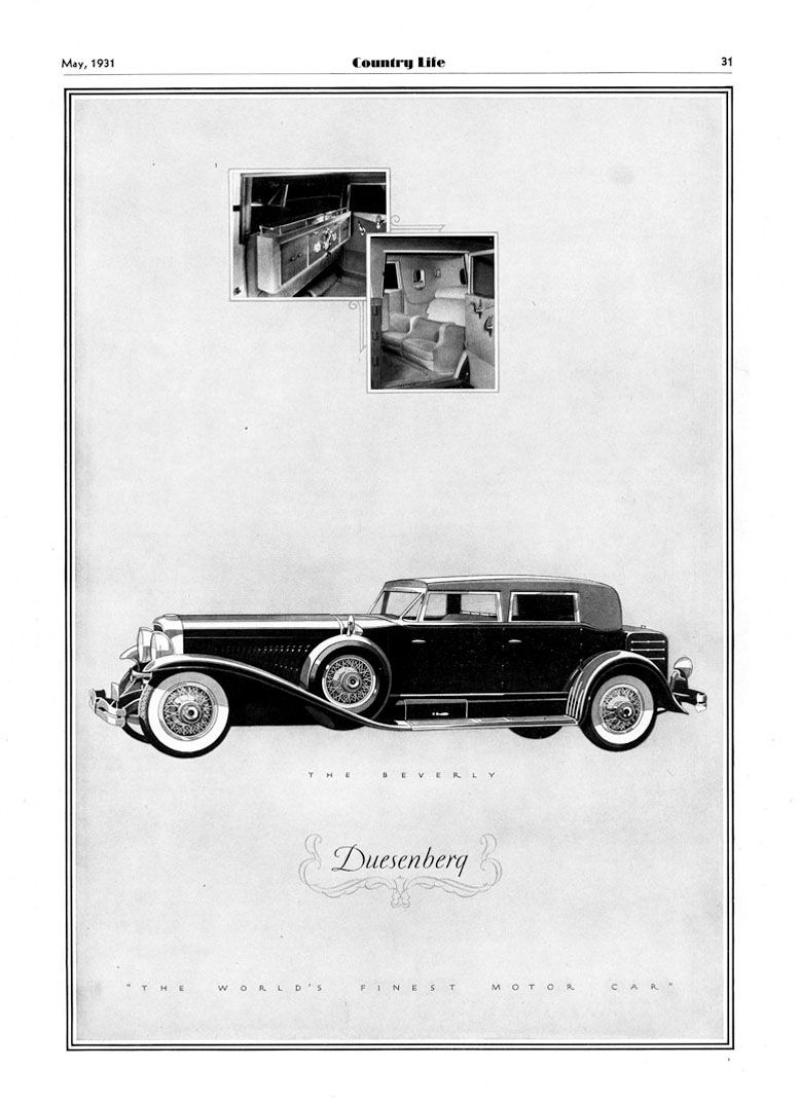
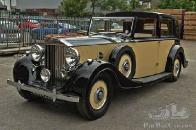



Now THERE was a car. Unfortunately, Duesenberg ended production the year I was born.
Maybe I was wrong about the last Duesenberg. I just noticed this when I searched Duesenberg IMAGES.
One-off concept represents a mid-1960s attempt to restart Duesenberg decades after bankruptcy
Duesenberg Motor Company may have closed its doors in 1937 severely affected by the Great Depression, but attempts were made to restart the business and this one from the mid-1960s actually resulted in one concept car.
It's built on a Chrysler Imperial chassis with a Chrysler engine. Want to buy it? Do you have almost half a million bucks? Read all about it and look at a bunch of pictures of it at this link -> 1966 Duesenberg Model D prototype said to be “the last real Duesenberg” up for sale | DriveMag Cars
Would have been cool if they had made a run of them. A Duesenberg.by Chrysler!
I suppose that if they had, it would have lowered the price from $475,000. I don't think they would have sold many at that price.
Good story and a classic auto.
It was a beauty back in its day. I note that the one-off one from the 1960s maintained the fender lines and the suicide rear doors.
It did and it was a good-looking auto as well.
So it was.
Yeah, but was it a "real doozie"?
As doozie as they came back then.